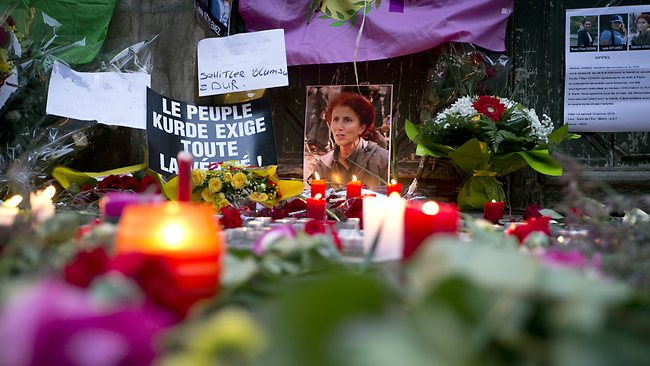
The ‘Egypt Support’ Fund, the 306306 account, has exceeded EGP 700m according to Ashraf El-Araby, Minister of Planning and International Cooperation, in the less than two months since its creation. Two other similar funds had been established since the start of the January 25th Revolution in Egypt with comparatively little success in fund raising. I would argue that the relative success of this fund has three important signals for Egypt, adding value that far exceeds the funds raised. Chiefly, I see positive signals of transparency, investor confidence and social participation for Egypt’s economic recovery.
Although the 306306 account was established in response to fears that the US would withdraw its $1.3bn in military aid to Egypt, it has grown to be seen as a general fund to support the country’s stalled economy. The account number refers to 30 June when massive street protests led to the removal of former President Mohamed Morsi. Accounts to collect donations have been established at all banks throughout the country according to the Central Bank of Egypt. Deposits can made domestically or internationally in Egyptian pounds, as well as major international and regional currencies.
The transparency signal
The first of the positive signals is a signal of greater transparency. El-Araby went on record days ago that a “non-governmental board of trustees will be formed from the civil society and the donors, to be in charge of it to guarantee transparency”. This is in stark contrast to a similar fund established under ousted President Morsi in November of 2012 named the Nahda (Renaissance) Fund or account number 333/333. For this fund, rather it was Egypt’s Central Auditing Agency, a government agency, that was tasked with monitoring deposits and withdrawals.
This signal of a greater willingness to run matters of the state in a more transparent fashion mimics other recent announcements and appointments by the current interim government. For example, after the reshuffling of the National Council on Human Rights weeks ago, for the first time half of the members included professionals with a human rights background, several who have been very vocal critics of the state’s past human rights abuses. The appointment of individuals like Hossam Bahgat, Director of the Egyptian Initiative for Personal Rights, gives people more confidence in a more truthful disclosure of details and accountability of the violence since the removal of former President Morsi, a top priority of the council.
For the transparency signal to continue to add value, the caretakers and administrators of the Support Fund need to focus on disclosure. Information disclosed needs to give donors and citizens alike confidence about the appropriate disbursement of funds. Ideally, this would include information about objective criteria used for spending, as well as disclosure about sizeable donations, which could have an influence on how funds are disbursed. This type of transparency would serve as a strong, positive signal that would assist in economic recovery.
The investor confidence signal
Business associations throughout the country actively responded to the call for donations. Within days of the Support Fund’s establishment, chambers of Commerce from Cairo, Behiera, Kafr Al-Shiekh, Port Said and Minya made pledges of several million Egyptian pounds to the fund or called emergency meetings of their members to encourage donation.
Striking about this quick response to the call for action by business associations was timing. These pledges were made within a week of the removal of former President Morsi before the appointment of the cabinet serving as the interim government and before the official appointment of Prime Minister Hazem El-Beblawi. These pledges preceded the appointment of a prominent liberal economist and a technocratic government. The demand for the latter was there but the fulfilment was yet to be completed.
Business associations who were vocal about the general support needed for economic recovery were willing to fund the cause after the removal of former President Morsi but not before. Morsi’s Finance Minister Momtaz El-Said publicised the Nahda Fund as an account that “will go towards meeting the demands of many Egyptian businessmen to bolster the economy”. Rather than donate to the Nahda Fund, they often criticised it as a failure of the state to effectively deal with past acts of corruption, the second objective of the fund.
This signal should lead to greater investor confidence following the Egyptian business society’s increasing positive feelings about doing business in post-Morsi Egypt. The timing of the signal would suggest that funds were available during the year rule of former President Morsi to support economic recovery but that his economic management team garnered little confidence of their ability to encourage and implement recovery. That the business associations made the pledges before the appointment of the interim government could mean there was an expectation of a return to the ‘old guard’ among the business elites. But the follow on pledges of hundreds of millions of dollars for investment after the appointment of what has been regarded as a clean, technocratic government would suggest a real confidence and perhaps a sign of more positive things to come.
The social participation signal
Average citizens have contributed their earnings to the cause, with campaigns encouraging workers to contribute a day’s wages. Others have contributed a month’s salary. Dar Al-Iftaa, a branch of Al-Azhar, announced that Egyptians could contribute zakat money, (charitable alms-giving by Muslims that is usually made during Ramadan) to support the economy. There are reports of small children contributing their pocket money. This social participation is perhaps the strongest of all signals in the willingness of average Egyptians to contribute to economic recovery.
The road to economic recovery for Egypt will be full of bumps and hurdles. They will come in a variety of ways. Chief among them is the willingness for and acceptance of real reform, which is desperately needed for real sustainable growth and any chance of fulfilling the popular demands made since the start of the revolution. There is no doubt that there is no hope for economic recovery or a better Egypt without the broad support of the population. June 30 is plenty evidence of that. Social participation in the Support Fund is a good, although not definitive, signal of the population supporting and sharing in the responsibility of economic recovery.
What’s perhaps most striking to me is how mutually and positively reinforcing these signals can be. Greater government and other transparency would certainly bolster investor confidence, particularly given the precarious fiscal balance sheets of the country. Social participation in economic recovery could also have a positive impact on investor confidence. More transparency would definitely encourage more social participation by Egyptians in economic recovery. And so on go the positive reinforcing impact of these signals.
Ultimately, EGP 700m is a small amount of money compared to funds needed to fix Egypt’s economic woes. And EGP 300m of that was donated by the country’s Armed services. But Egyptians donated EGP 400m through private donations and organisations. This is 10 times the amount of money raised by the “Contributions to Support the Egyptian economy”, account 2512011 named for the first day of the revolution, launched during Prime Minister Essam Sharaf’s government in March of 2011. Circumstances have certainly changed considerably since then. The economy is in dire straits and then money is more desperately needed. But I do believe that these signals of transparency, investor confidence and social participation add a value that exceeds the money collected by the Support Fund. Let us all hope that they will positively reinforce each other and aid in economic recovery.




